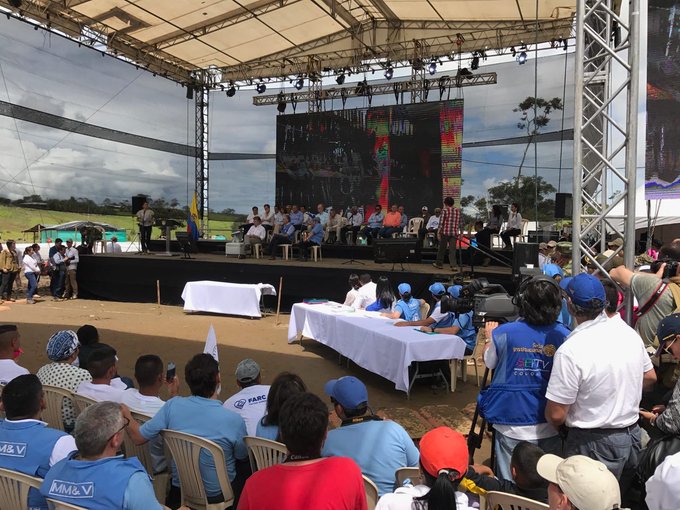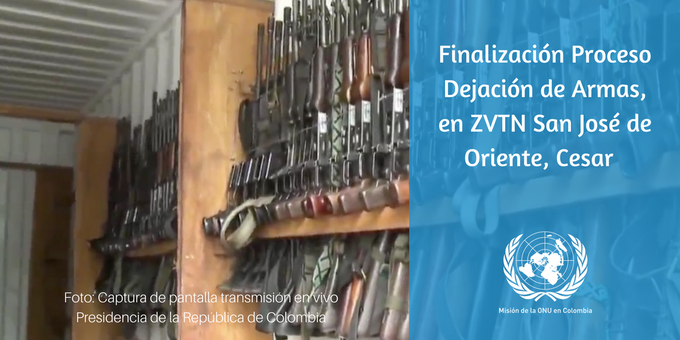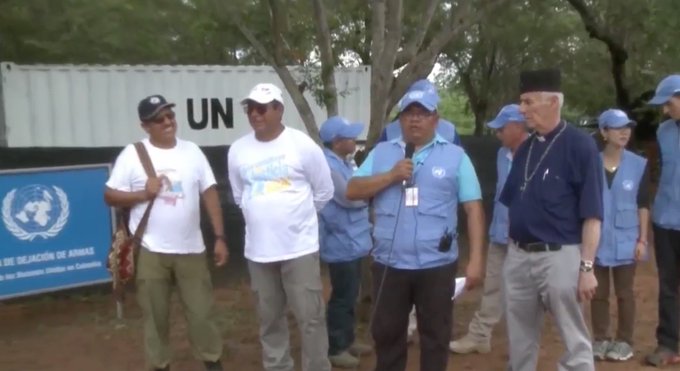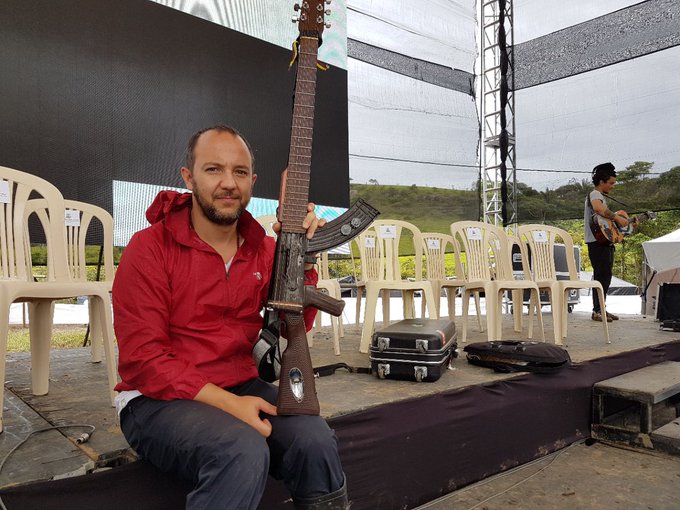NOVANEWS
The United Nations has confirmed that the Revolutionary Armed Forces of Colombia, FARC, has delivered 7,132 weapons, as part of the peace process to end decades of conflict and start their transition into politics.
The group’s representatives and the government have been attending a disarmament ceremony in the Mesetas, around 250 kilometers south of Bogota.
The rebels’ leader Rodrigo Londoño, also called Timoleon Jimenez, or Timochenko, and the Colombian President Juan Manuel Santos were also present.
Timochenko told FARC fighters they were “yesterday militants of the people’s army, now militants of the hope of the people.”
“Today is not the end of the FARC, it’s the end of us taking up the arms 50 years ago, we continue to exist through legal and peaceful means,” Timochenko said.
The FARC leader said the group had honored their word and complied with the peace deal, and they expected the state to do its part, demanding an end to political persecution.
“We will walk through the streets and plazas of Colombia bringing our message of peace,” Timochenko said.
“Goodbye to arms, goodbye to war, welcome peace!”
Timochneko denounced paramilitary violence which continues to harm the group as well as the deaths of human rights activists who have been murdered since the peace agreement was signed.
Six months after the signing of the Amnesty Law, he said many FARC members are still in jail. Only 832 of the 3,400 FARC prisoners have received amnesty. Hundreds of them have started a hunger strike to demand the implementation of this part of the agreement.
“The peace agreement is not for the FARC but for the entirety of Colombia,” Timochenko said.
Colombia’s President Juan Manuel Santos told the audience at the ceremony “We are no longer a story of pain and death, we are one people and one nation, advancing towards the future in democracy”. He added that “Today is the day the weapons were changed by words.”
Santos said the disarmament signifies the end of decades of war that affected millions, and the international community will see through the implementation of all aspects of the agreements. He said both sides still need to comply with several aspects of the deal.
“There will be justice, and there will be reparation, there will be truth, and a guaranty of no repetition, we made sure of that in the peace agreement,” Santos said.
Colombia’s President said he will never agree with the FARC on the political or economic model for the nation but said he will defend their right to express their ideas, and offered all security guarantees that are necessary.
Jean Arnault, head of the U.N. mission in Colombia, said the disarmament process has seen the largest amount of weapons being handed in from any recent conflict. He said this implementation will bring definitive peace and prosperity especially to the most affected areas and hope for the victims.
“We recommend that the UN gather the lessons of the experience of the mission in Colombia to apply them in other parts of the world,” Arnault said.
The process to deliver all weapons was approved on May 29, 2017. It marks the beginning of the fighters’ reintegration into society and the end to more than fifty years of conflict with the Colombian government, which claimed around 260,000 lives.
Timochenko and other leaders have said they will continue their fight for social justice now through peaceful means.
The disarmament process had been scheduled to end last month, but the both sides announced an extension due to logistical problems. The sticking points included issues over security and infrastructure shortages for the 26 transition zones for members of the FARC.
RELATED: Colombia’s Uribe Vows to Roll Back Deal with FARC If His Party Wins in 2018 Election
The zones are the next phase of the peace process which is helping the former rebels reintegrate back into civilian life.
The historic agreement had the support of the international community, especially guarantor countries such as Cuba, Ecuador, Venezuela, Norway and Chile.
The UN peace mission said that by August 1 they will have stored all the weapons from the camps. They will be used to build three monuments signifying peace as agreed in the deal negotiated with the Colombian government in Cuba.
Further aspects of the accord still to be implemented include land for campesinos, demining, the fight against drug trafficking as well as state social investment in education and health.







